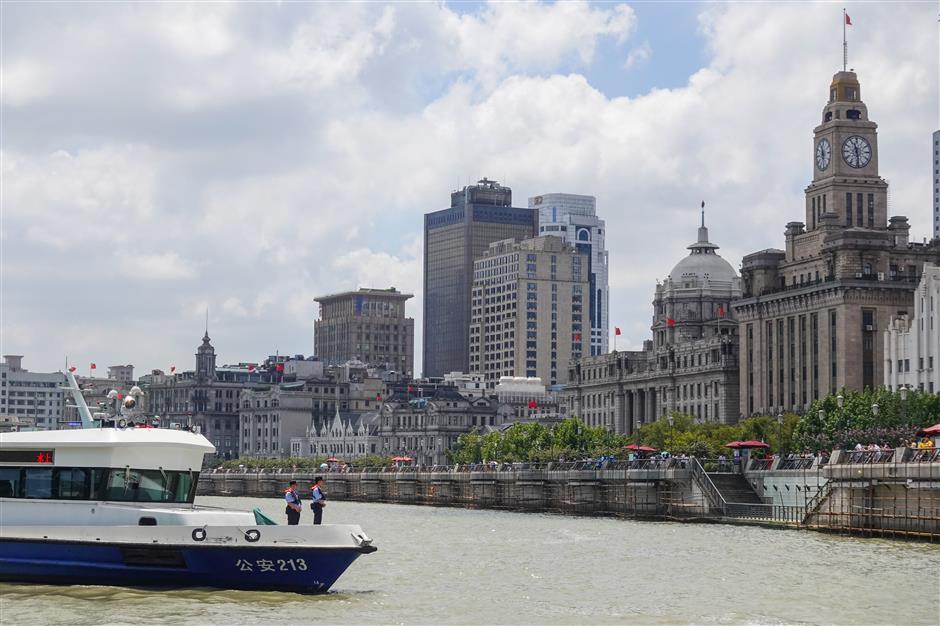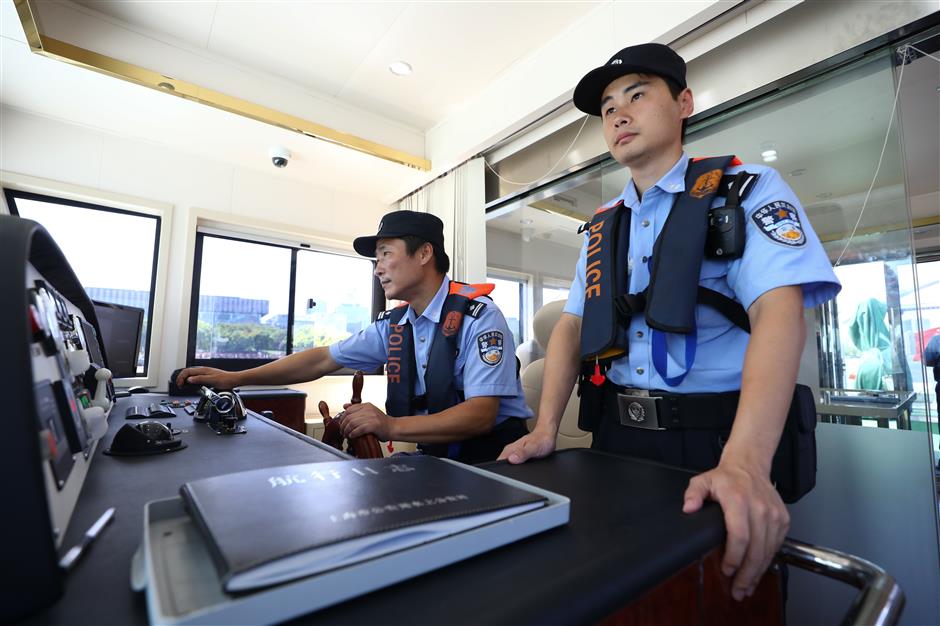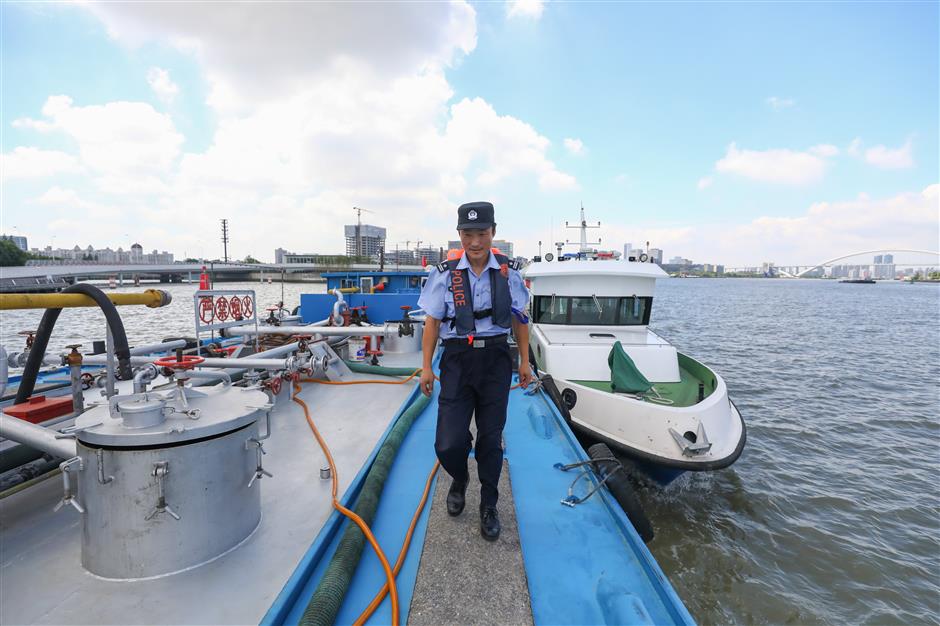Aquatic cops saving lives on their riverine beat

A marine police boat patrols the Bund during scorching weather.
Cruising the Huangpu River past the scenic Bund every day might seem like a glamorous occupation, but for Yuan Xiaowei and his colleagues in Shanghai marine police, it is much more than just messing about in a boat.
Yuan, 51, a former navy crewman, is the chief captain of the marine police, with 12 years of experience in police work.
His team is charged from pulling people from the water, inspecting boats, dealing with river crime and handling with any water-based emergencies that arise.
The police are responsible for patrolling 47 kilometers of the Huangpu from Wusongkou in the north to Guangang in the south, 14.7 kilometers of the Yangtze River from Wusongkou to Liuhekou, and 13.7 kilometers of Suzhou Creek from Waibaidu Bridge to Zhongshan Road North Bridge.
The stretch of the Huangpu along the Bund is the most touristy part of the beat, requiring patrols 24/7.
Yuan recalls the time he was on duty one night during a typhoon. It was 3am, when he and his colleagues were notified that a person had fallen into the river. They arrived quickly on the scene and saw a man floating in the water.
A life buoy was thrown, but the man was unable to grab it. So the crew used a rod to hook his clothing and a loop to pull him toward the police boat. A life was saved.
“When the tides are high, a person who falls into the river could drown within two or three minutes,” Yuan said.
In another case, a woman fell into the river while cleaning the deck of a cargo boat and held onto a buoy in the middle of the waterway for 30 minutes before someone on the bank spotted her in distress and called the police.
Her husband, who was at the helm of the cargo boat, had no idea his wife had gone overboard. The woman was rescued by Yuan and his colleagues.

Yuan pilots a police boat with his apprentice, Zhao Shu, while patrolling.
Marine police officers are trained to save drowning people, even if that sometimes means jumping into the water themselves.
“I once had to jump into the river in April to save someone,” Yuan said. “My hands were frozen after three minutes.”
This year, the marine police have helped to save 31 people from drowning.
When patrolling the river, the officers are constantly scanning the area around them for anything untoward.
Yuan once spotted unusual black smoke coming from a boat on the river. When they pulled near, they could see that the boat was on fire.
Immediately Yuan and his colleagues turned their boat around and used the water cannon on the stern to fight the fire.
Another two police boats soon came to join the rescue. The fire was eventually extinguished without any casualties or excessive damage.
Yuan still remembers the heat and choking smoke from the fire, the first he had ever encountered on the river.
“Professional firefighters have their own boats on the river, but it’s our job to address any emergency if we are closest,” Yuan said.
Yuan and his team also inspect the boats that ply the river, checking the papers of crew members, cargo and firefighting equipment.
“The most frequent problems are pilots with no marine licenses, fewer fire extinguishers than required, automatic identification systems turned off and contraband cargo on board,” Yuan said.

Yuan Xiaowei, chief captain of Shanghai marine police, inspects a boat.
Four years ago, their diligent inspections led to the first-ever case of dumping illegal waste in the river.
The city maritime bureau requires all construction waste transported by boat to be dumped at specified locations a number of hours from the Huangpu River.
During this particular inspection, Yuan’s team spotted one waste-cargo boat returning to the construction site only 20 minutes after leaving it.
It turned out that the boat had dumped its cargo of mud from a construction site right into the river. The perpetrators were convicted of damaging transportation facilities because illegal dumping can obstruct the waterway and disrupt river traffic.
Yuan said the job of a marine police boat captain differs from a naval boat captain in the sense that he needs to be more versatile.
“In the navy, every crew member is responsible for a particular job, but a police officer who operates a marine boat has to be familiar with all mechanical and communications equipment on the boat, deal with problems as they arise, and be able to read the wind and waves,” he said.
It takes three to five years for a police officer with no boat experience to be qualified to operate a patrol boat.
Outside work, Yuan is an amateur marathon runner.
Living in Jiangwan Town, northern Shanghai, 15 kilometers from where he works, Yuan sometimes runs to work. It takes him 90 minutes.















